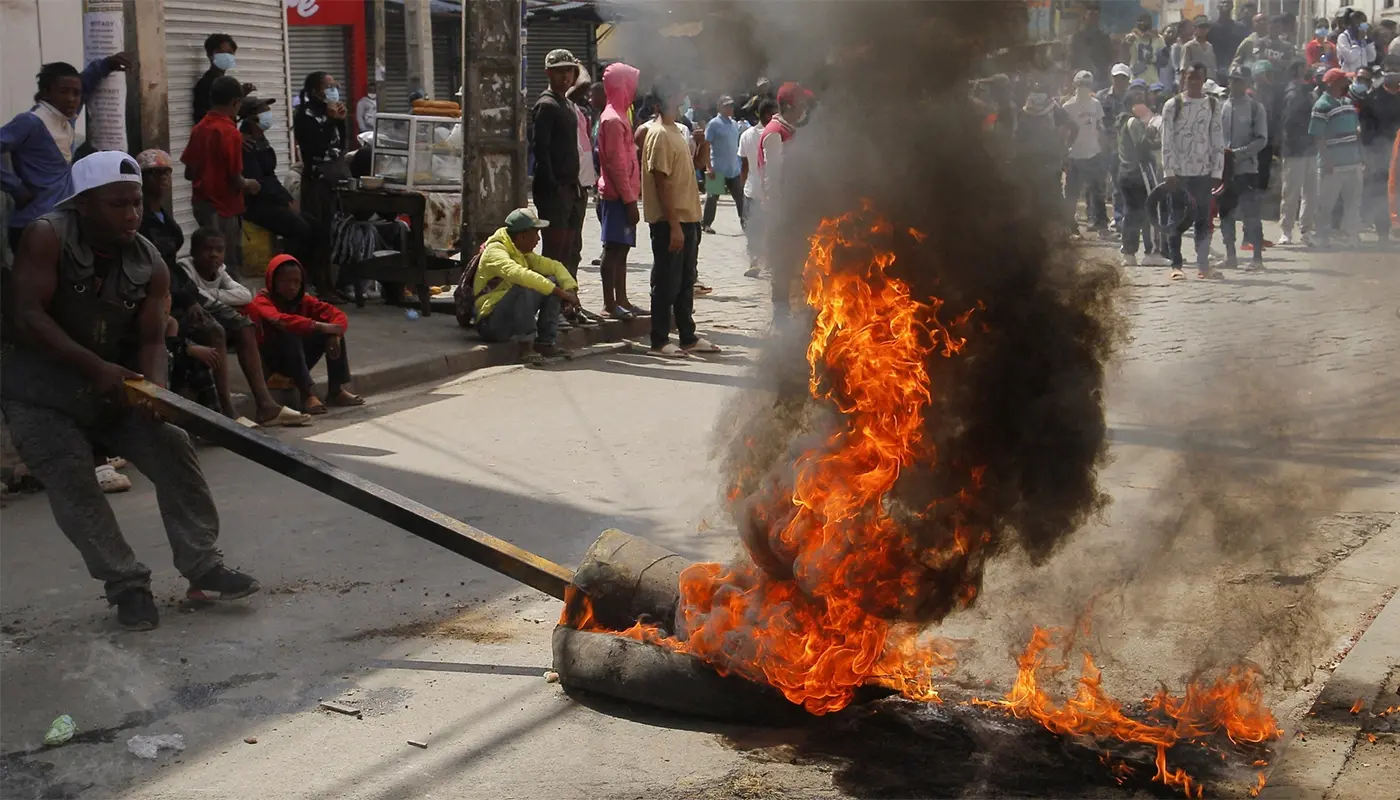ANTANANARIVO – Madagascar has witnessed a sharp intensification of protests in its capital, with police deploying tear gas, rubber bullets and stun grenades against demonstrators demanding major political and socio-economic reforms.
The unrest, significantly led by young people under the banner “Gen Z Madagascar”, began in late September over persistent power and water outages.
What started as a movement centred on infrastructure and daily hardships has grown into widespread public anger over corruption, nepotism and lack of trust in governance.
On 9 October, about 1,000 protesters marched in Antananarivo toward the Ambohijatovo Gardens, also known locally as Democracy Square.
According to local media and international press, authorities responded with force, including firing tear gas and rubber bullets to disperse the crowd. Some demonstrators reportedly threw stones in retaliation.
Medical organisations reported that at least four protesters were injured by rubber bullets, with others hurt by projectiles from stun grenades. One man was seen unconscious in the Anosibe district after a confrontation with security officers.
In response to the growing chaos, the government imposed a curfew in Antananarivo, from evening until early morning, in an effort to restore public order.
Authorities also reiterated that demonstrations should proceed only within legal boundaries, pointing to concerns over property damage and safety.
International voices have raised alarm over reports of heavy-handed tactics. The United Nations human rights office has urged Madagascar’s security forces to avoid unnecessary violence and respect protesters’ fundamental rights.
Meanwhile, protest organisers remain unbowed. They have declined offers from President Andry Rajoelina to engage in dialogue, demanding instead his resignation, the dissolution of certain governmental institutions, and improved access to basic utilities.
The situation remains tense. While some government reshuffling has occurred, many citizens feel the changes do not go far enough.
The Gen Z movement, which has tapped into social media to mobilise support, is calling for more sweeping reforms to tackle what critics describe as deep-rooted governmental failings.
Sources: Al Jazeera, Reuters, Associated Press, Le Monde




